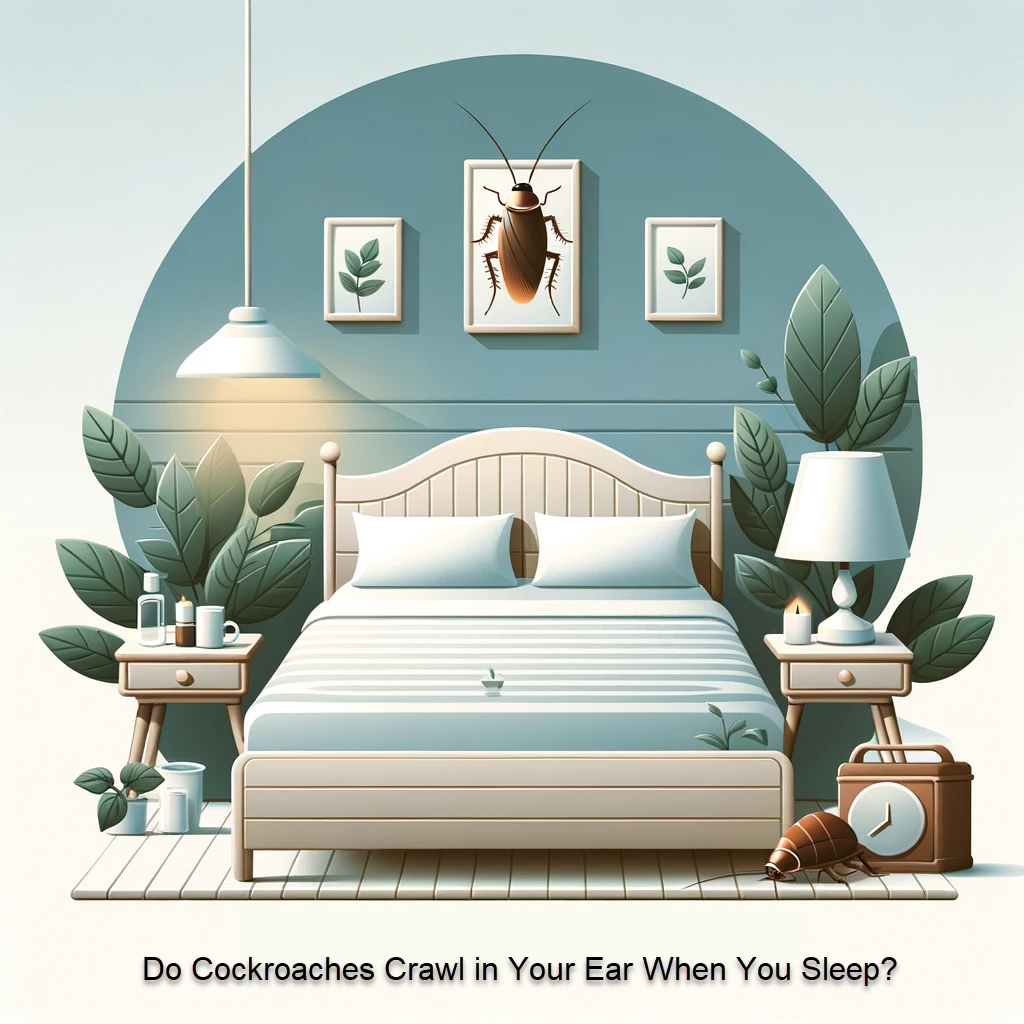Can Cockroaches Crawl in Your Ear When You Sleep?
 Debunking Myths and Ensuring Peaceful Nights
Debunking Myths and Ensuring Peaceful Nights
A common urban legend that often circulates, causing shivers down many spines, is the idea: can cockroaches crawl into your ear while you sleep. Such thoughts can turn peaceful nights into restless worry. But how much truth is there to this unsettling notion? This post aims to explore the realities behind this cockroach in ear – fear, debunk myths, and offer practical advice to ensure your sleep remains undisturbed by the thought of unwanted nocturnal visitors.
Understanding the Fear of Cockroach in Ear
The fear of cockroaches crawling into ears stems from the insects’ tendency to explore and squeeze into small spaces. While it’s not impossible for a cockroach to find its way into a human ear, such incidents are exceedingly rare. Understanding cockroach behavior helps put this fear into perspective.
Cockroach Behavior / Human Contact / Cockroach in Ear
- Nocturnal Activity: Cockroaches are primarily nocturnal and avoid light, which means they are more active at night. However, their nighttime activities are usually focused on searching for food and water, not exploring human ears.
- Attraction to Cracks and Crevices: Cockroaches are attracted to tight spaces for hiding and breeding, not human ears specifically. So can cockroaches crawl into your ear? The likelihood of a cockroach intentionally crawling into an ear is very low.
Debunking the Myth
Medical Reports and Statistics
- Rare Occurrences: While there have been isolated medical reports of cockroaches found in ears, these cases are extremely rare compared to the global population and frequency of cockroach-human encounters.
- Accidental Incidents: Most incidents of cockroaches entering ears are accidental and not a common behavior of the insects.
Preventive Measures
Ensuring that cockroaches are not attracted to your sleeping area can help alleviate fears and reduce the already minimal risk of such an encounter.
Maintain Cleanliness
- Reduce Food and Water Sources: Keep your sleeping area clean and free of food crumbs or water sources that might attract cockroaches.
- Regular Housekeeping: Vacuum and declutter regularly to minimize cockroach hiding spots.
Seal Entry Points
- Cracks and Gaps: Seal cracks in walls, windows, and doors to prevent cockroaches from entering your living spaces.
Use Natural Repellents
- Peppermint Oil: A natural deterrent for cockroaches, peppermint oil can be used around your bed and sleeping area to keep cockroaches at bay.
Conclusion: Rest Easy
While the thought of cockroaches crawling into ears during sleep can be disturbing, understanding the realities helps put this fear to rest. Such incidents are exceedingly rare, and simple preventive measures can further reduce the risk. By maintaining cleanliness, sealing entry points, and using natural repellents, you can ensure peaceful, worry-free nights. Remember, cockroaches are more afraid of you than you are of them, and they’re not out to disrupt your sleep.
- The Life Span of a Cockroach
- Do Cockroaches Eat Clothes?
- Do Cockroaches Have Teeth?
- Shrimps and Cockroaches
- Will Sleeping with the Light On Keep Cockroaches Away?
- How to get roaches out of your car overnight
- Do Cockroaches Feel Pain?
- How Many Legs Do Cockroaches Have?
- Comparing Cockroach Eggs Size for Different Types of Cockroaches
- Identifying a Cockroach Bite on the Lips or Face
- Black Water Bug Identification and Control
- Why Do Water Bugs Come Out At Night?
- What Does Roach Rash Look Like?
- Can Cockroaches Bite Your Eyelid?
- Can Cockroaches Live in Your Balls?
- How did cockroaches get their name?
- Why Do Cockroaches Shed Their Skin?
- What Smell do Palmetto Bugs Hate?
- Baby Palmetto Bug: Identification and Control
- Cockroach Eggs vs Poop: How to Tell the Difference
- How to Get Rid of Water Bugs
- How Long Can a Cockroach Live Without Air?
- The Lifecycle of the German Cockroach: From Egg to Adult
- Do Mice Eat Roaches
- Wood Roach vs. Cockroach

